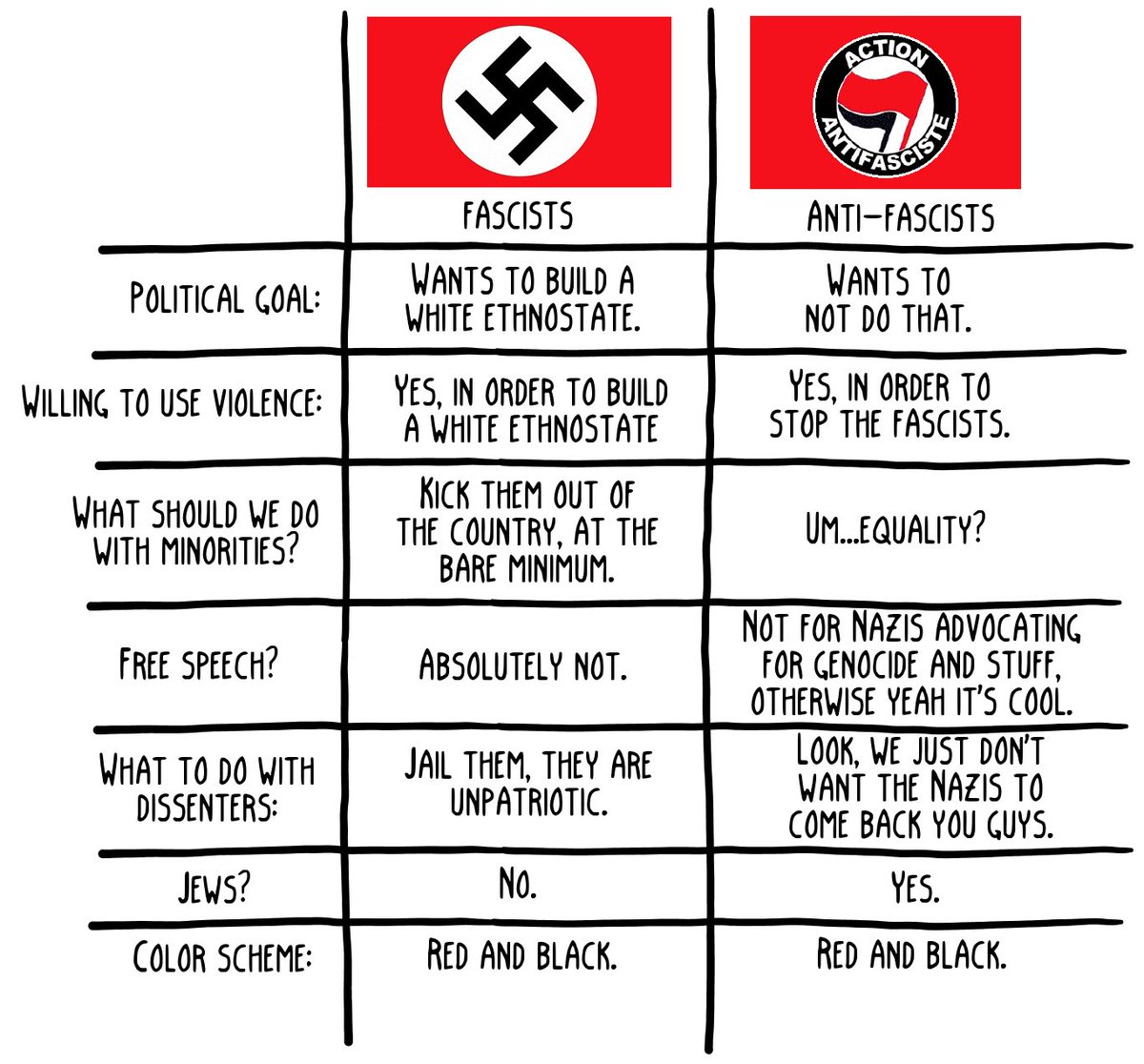Alright. “regardless of what we do Nazi violence will intensify.” (you stated it more strongly, even, than I was willing to.) And, “the world they want is vanishing and it’s going to keep vanishing.” These statements are almost beautifully contradictory, thank you.
I disagree with the latter, because white supremacy is so useful to rightwing politicians in service to the pro-corporate agenda (particularly with Republicans and the US). The daily headlines should be enough to convince you of this.
You ask what could possibly “restrain their political power and hold them back from killing people.” Presumably, not punching. It’s important to ask this question of instrumental action, sure. If that’s all you do, though, then you’re being absolutist in your moral reasoning. The opposite error, which you so detest: punching a nazi is ethical because nazis are so very bad. It’s a purely value-rational good. It’s not any less sophisticated than what you’re up to. Now, you told me to read up on history. Well, fine. I want you to read about pluralism (in moral philosophy, specifically).
One important moral virtue is courage. This weighs heavily on the scales for me, given the contemporary situation, and–as you sort of admit–the undoubtedly difficult road ahead. The ethic that says nazis should be punched when they come out in public is the kind of thing that gives succor to all the other important efforts that communities undertake, to fight back. It doesn’t mean that one desires to see violence escalate, by holding that view. It only says, to the antifa activist who adopts the ethic in action, this is a justified response to horrible provocation; we are with you.
Have you seen the documentary about Daryl Davis, Accidental Courtesy? The thing that was so interesting about that movie is his meeting with Black Lives Matter activists, and how he could no longer relate, in what he was doing (outreach to Klan members), to them and to their important and, frankly, more consequential work as activists. It ended up being a tragedy. The man who sets out to make peace with his adversaries ends up stuck in the no man’s land between camps. You can see it as a personal failing, I suppose. It seemed to me like he wasn’t willing to have the same patience with those on his side, as he did with KKK members espousing blatant racism. But I don’t think it’s just personal, and you may be fooling yourself if you think you can do better. Interpretive labor is alienating, is the basic problem there.



